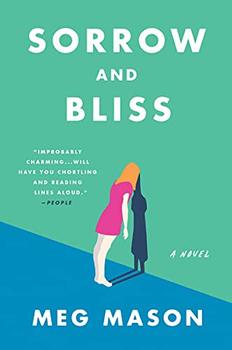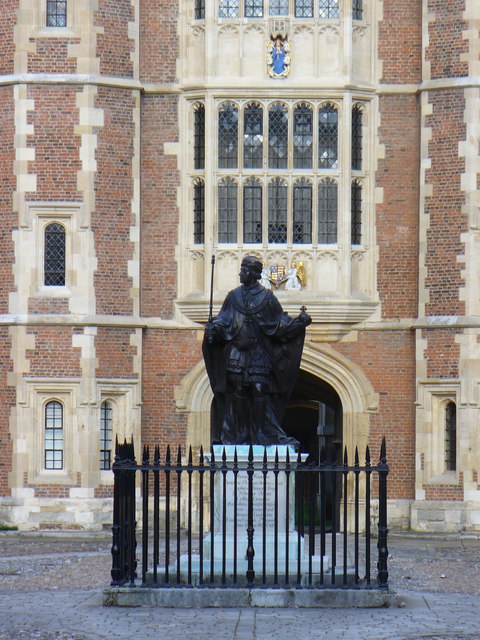Summary | Excerpt | Reviews | Beyond the Book | Read-Alikes | Genres & Themes | Author Bio

This article relates to Sorrow and Bliss
 In Sorrow and Bliss by Meg Mason, which explores psychological wounds and mental illness, Martha's husband Patrick was sent to boarding school at a young age. The image of boarding schools is deeply embedded in the British psyche. Writers from Enid Blyton to James Joyce have found these strange micro-societies to be rich earth. In fiction, they offer the chance to explore isolation, oppression and hierarchy from a childlike perspective. But what happens when children who begin their lives in such environments, having been separated from their families and placed in a highly regulated atmosphere, grow up?
In Sorrow and Bliss by Meg Mason, which explores psychological wounds and mental illness, Martha's husband Patrick was sent to boarding school at a young age. The image of boarding schools is deeply embedded in the British psyche. Writers from Enid Blyton to James Joyce have found these strange micro-societies to be rich earth. In fiction, they offer the chance to explore isolation, oppression and hierarchy from a childlike perspective. But what happens when children who begin their lives in such environments, having been separated from their families and placed in a highly regulated atmosphere, grow up?
According to some psychotherapists, negative effects of boarding school can be long-lasting, even permanently damaging. The resulting symptoms are wide-ranging, but may include an inability to share feelings, a tendency to avoid groups, a profound sense of not belonging and an acute discomfort with asking for help. Some ex-boarders struggle with depression, anxiety, obsessive or controlling behavior, and substance abuse problems in adult life. Some have problems with forming relationships and self-esteem.
Of course, not all people who attended boarding school feel negatively about it. Those who extoll its virtues might point to the fact that it can also produce self-reliance, confidence and discipline. However, many ex-boarders who seek therapy in adulthood display a pattern of behavior. In the 1990s, Nick Duffell, a psychotherapist and former boarding school student himself, started work to get this constellation of problems recognized as a disorder. In 2011, Boarding School Syndrome (BSS), coined by psychotherapist Joy Schaverien, became the unofficial term for the condition. Many psychologists see symptoms of BSS in their patients, and some, including Duffell and Schaverien, believe that it is an issue worthy of national concern.
The root cause of psychological damage among BSS sufferers may be early departure from the family home, along with the impersonal and often disciplinarian approach encountered in their new environment, which in some cases is worsened by instances of bullying or other types of abuse. "Early rupture with home has a lasting influence on attachment patterns," Schaverien writes. "When a child is brought up at home, the family adapts to accommodate it... But an institution cannot rebuild itself around one child. Instead, the child must adapt to the system." This causes the child to create a hard exterior in order to deal with outside pressure, burying hurt underneath. As Schaverien explains, "Whilst appearing to conform to the system, a form of unconscious splitting is acquired as a means of keeping the true self hidden… The self begins to become inaccessible; 'Boarding School Syndrome' develops."
As many leading politicians were educated at Eton — possibly Britain's most famous boarding school — perhaps we should be paying attention to the effects BSS might have on those in power. Eton alumni include Prime Minister Boris Johnson and former Prime Minister David Cameron. Many other British political figures have attended Eton or similar elite boarding institutions.
However, boarding school attendance in the United Kingdom is a declining trend. Skyrocketing fees as well as a growing awareness of the potential damage to children's mental health may be contributing to enrollment figures going down — though British boarding school life still seems to hold appeal overseas. Nowadays, many British boarding schools are making up their numbers through hosting the children of not just local families but those of other countries.
Additionally, the image of boarding schools as draconian and abusive may be out of date. It is now much rarer to send very young children away for education, and the structure and ethics of the institutions have evolved since Duffell et al were in attendance. A doctrine of "Minimum Standards," which all boarding schools must adhere to, is now in place. It includes policies for the protection of students' mental health and privacy. Whilst all issues surrounding children's psychological well-being (and the well-being of adults who are still affected by their own childhood experiences) warrant discussion, BSS may be on its way to becoming an old-fashioned concern.
Eton College quadrangle with bronze statue of Henry VI, who founded the school. Photo: Colin Smith (CC BY-SA 2.0)
Filed under Cultural Curiosities
![]() This "beyond the book article" relates to Sorrow and Bliss. It originally ran in March 2021 and has been updated for the
March 2022 paperback edition.
Go to magazine.
This "beyond the book article" relates to Sorrow and Bliss. It originally ran in March 2021 and has been updated for the
March 2022 paperback edition.
Go to magazine.
Our wisdom comes from our experience, and our experience comes from our foolishness
Click Here to find out who said this, as well as discovering other famous literary quotes!
Your guide toexceptional books
BookBrowse seeks out and recommends the best in contemporary fiction and nonfiction—books that not only engage and entertain but also deepen our understanding of ourselves and the world around us.